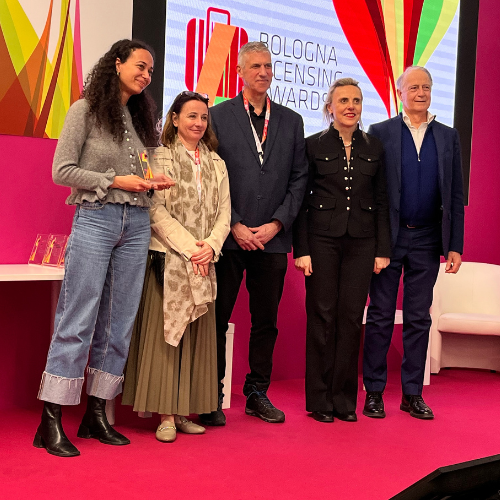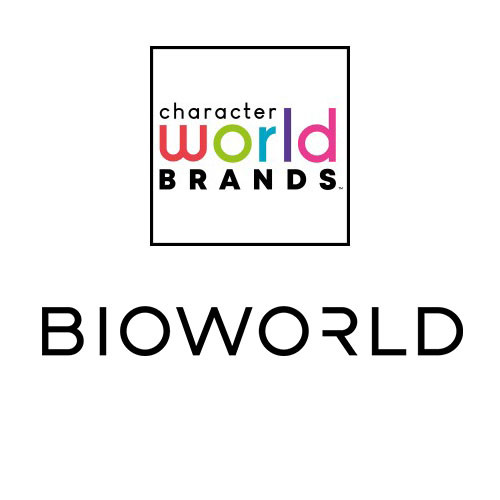Start Licensing’s Ian Downes takes on his own product testing challenge this week.
This week I decided as well as looking out for licensing I should set myself a licensing challenge and test a product.
I took up the challenge of making a Jamie Oliver pizza base. Licensee Fiddes Payne has developed a broad range of Jamie Oliver branded products which include pepper grinders through to microwaveable pouches of ready to eat grains. The Make Your Own Rustic Pizza Base is part of a new range of products that has been added to the range.
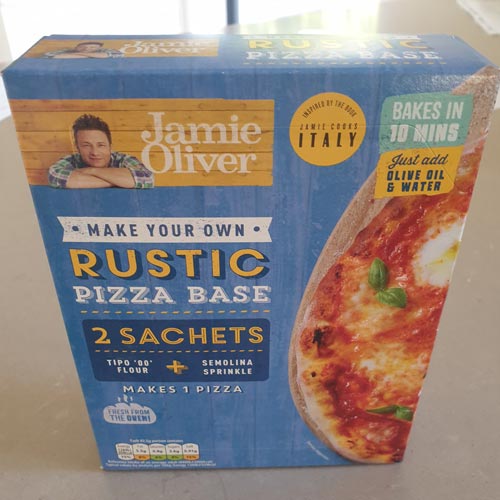
The product stood out well on shelf with a very contemporary looking pack which included Jamie Oliver’s photograph and signature brand devices. The blue colourway also worked well on shelf.
Jamie Oliver is probably one of the first names people would mention if they were asked to name a ‘celebrity chef brand’ in licensing. Seemingly his licensing programme has generally gone well. I think specifically Fiddes Payne’s products have performed well. I am sure Jamie is hands on in terms of NPD and suggesting ideas, but Fiddes Payne’s contribution shouldn’t be underestimated. Every celebrity needs a good licensing partner.
Celebrities trade off their reputation and when chefs choose to licence their name to food products it presents a particular challenge. Scaling up original recipes to mass production is one of the challenges, as is sourcing ingredients that are financially workable. Working with established and experienced licensees like Fiddes Payne helps minimise the risk factor for celebrities and, of course, allows them to tap into the licensee’s category knowledge to good effect.
I think there also has to be a relevance for products – I suspect in Jamie Oliver’s case he is looking to develop new products that reflect new trends in cooking, ingredients and diet. I am sure part of the move into products like pizza bases was fired up by Jamie Oliver’s presence in the restaurant sector with Jamie’s Italian, but current circumstances mean this link has been lost, however these products seem to have found their way well in the market.
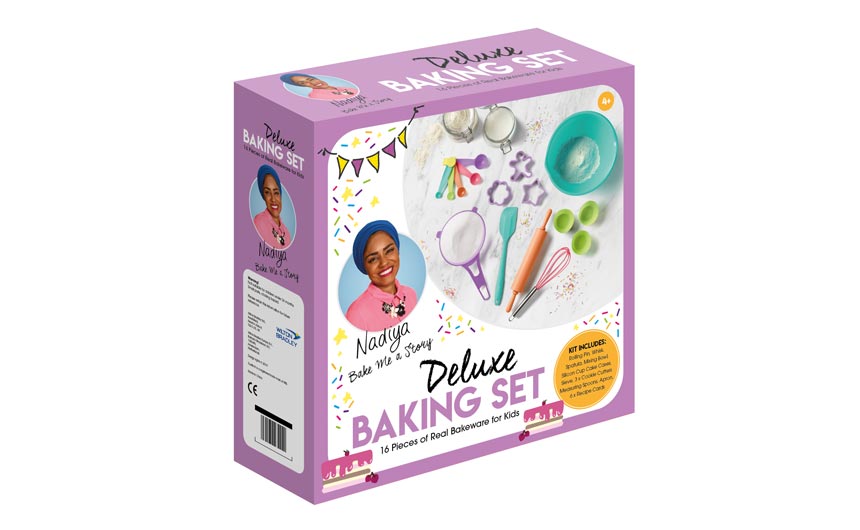
Working with celebrities brings a number of challenges that don’t exist with other types of licensing including integrating licensing into their wider activities including balancing demands on their time. Other considerations include working with broadcasters and acknowledging their perspective on licensing.
I work with Nadiya Hussain and Jane Devonshire. Both Nadiya and Jane came to prominence through initial success on television shows but have built successful careers since. In both cases they have built a solid foundation of activity in the publishing category with a range of books. Jane published her second book in December launching her Hassle Free Gluten Free Vegetarian, while Nadiya’s latest book – Nadiya Bakes – has been a huge success.
Publishing is a way of creating a foothold into licensing. In Nadiya’s case she has a very successful homewares range from Bliss and more recently her children’s bakeware range from Wilton Bradley has been successfully launched. In both cases Nadiya was hands on with the development and works closely with the licensee. There is an authenticity to the product and partnership. That seems to be a key to success in celebrity brand licensing.
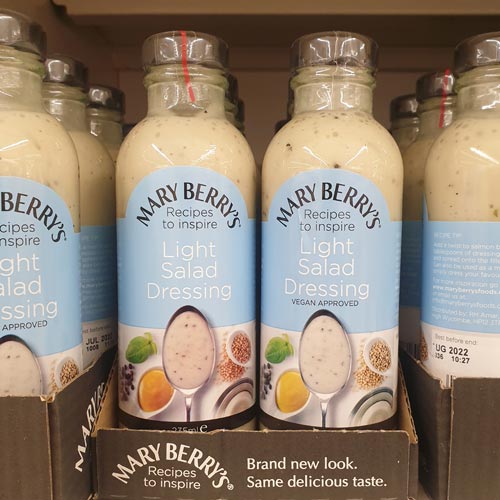
There are a number of other long-term examples of success in terms of celebrity licensing in the FMCG category that are worth noting.
On my recent supermarket visit I noticed Mary Berry’s range of salad dressings is still in-store and appears to be well established. Importantly, it is established as a brand in the category rather than a challenger or newcomer. The packaging trades off Mary’s name rather than relying on her image or a sub-brand. I am guessing the idea for the licensee and for Mary is that this product does indeed become an established brand in the category and it is not seen as a transitory celebrity endorsement.
A further example of how celebrities can become an FMCG brand is the ongoing success of Newman’s Own Dressing & Dip. This brand was established by the late Paul Newman and continues to thrive after his death. The product includes an illustration of the actor on-pack and is now further underpinned by a cause-related link with all profits from sales going to charity.
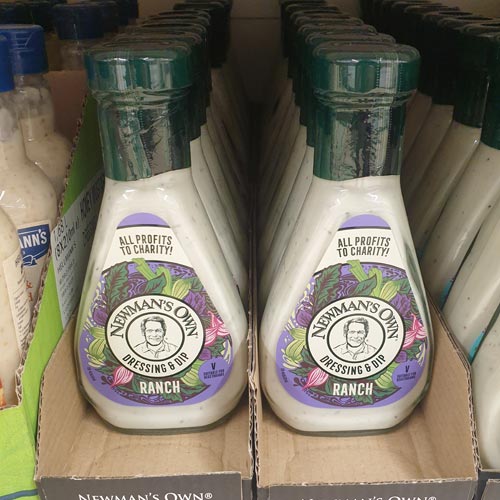
Other celebrity chefs have managed to establish ongoing ranges in supermarkets which in many regards are now regarded as standalone brands and products. Two good examples of this are Ainsley Harriott who has a line of Cup Soup products, while Loyd Grossman’s sauces are still strong players in their category.
There is a fine line to tread here and there has to be careful management from licensees in how retailers regard ranges like these. Celebrities may not always be on TV or have other strings to their media bow, so the licensee has to persuade retailers that their licensed products have an ongoing role to play at retail. Ultimately this will come down to sales performance and here again it is crucial that the right decisions are made from day one. Choice of licensee and product is crucial. For the celebrity, developing a suite of licensed products gives them the opportunity to create a legacy business which will be attractive from a career development perspective.
As well as the established players, there are always new players coming into this brand licensing space. Celebrity brands not only have to compete with established FMCG brands but also other celebrities for space. One new entrant is Bosh!, a brand focused on vegan cooking which has developed the brand via YouTube, publishing and TV programming.
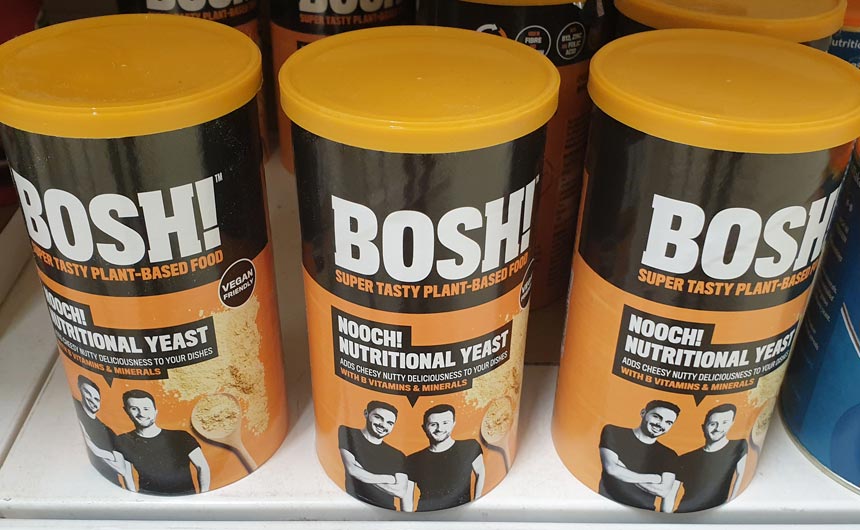
Bosh! is working with Finsbury Foods to create a range of plant-based products. This was initially focused on celebration cakes. More recently Finsbury Foods and Bosh! have added a range of traybakes that will be sold in Costa Coffee. This is a good example of Finsbury Foods identifying and choosing an on-trend licence, but also both sides recognising that a FMCG brand can be nurtured outside of the supermarket shelves.
Not sure if the licensee is Finsbury, but I also noticed Bosh! has a range of Nutritional Yeast selling in supermarkets. Rather like the Jamie Oliver range the Bosh! product has a really contemporary design that is high impact on shelf and uses the talent behind the brand to sell the product.
In the age of YouTube channels and creator-owned media it is no surprise that brands like Bosh! are coming to the fore and that the creators of the brand are the brands strongest assets.
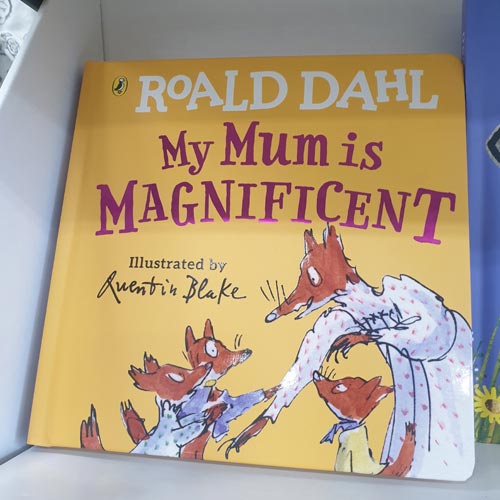
I have mentioned in other Lookouts that licensing seems to be getting better at picking off calendar events and creating licensed products that fit these events.
As we approach Mother’s Day it was interesting to see how publishers are tapping into the Mother’s Day gifting market. Publishers have developed specific Mother’s Day book formats including a My Mummy and Me by Roger Hargreaves as a Mr Men and Little Miss special (I think this was available last year as well), while there were Mothers’ Day books from established authors such as Judith Kerr and Roald Dahl. Publishers and other licensees have recognised there is a value in creating specific products for specific buying occasions.
For a celebrity like Jamie Oliver, it is essential that his licensed products work and succeed. They have to be authentic and deliver a positive consumer experience. Each product contributes to building a brand with longevity and credibility. So I am pleased to confirm my pizza making was a success and I can give Jamie’s Pizza base a 5 star review. A licensing and pizza making success story!
Ian Downes runs Start Licensing, an independent brand licensing agency. His Twitter handle is @startlicensing – he would welcome your suggestions for what to look out for.












